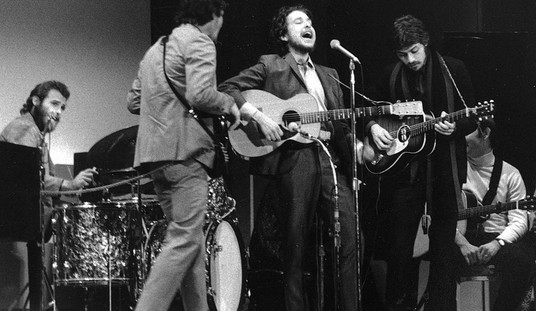How do you know there are vegans at your party? They'll tell you.
Nobody with enough sense to pound sand cares what anyone else eats, or doesn't eat, unless they are paying for it - or unless they are being stolen from. And that's how it should be. We pay our own way, we make our own choices, in food and elsewhere. Furthermore, the more sensible among us mind our own freaking business about the whole thing.
Then there are the Doom Pixies of the world. These are people, people who style themselves as "ethical vegans," or animal rights activists (or both) who not only preen about a dietary moral high ground they aren't entitled to, but also would force their dietary choices on the rest of us. That's crossing a big, red line marked with road flares, sirens, and flashing red lights, but that doesn't mean it isn't true. Now a new study has confirmed this.
The investigation, ‘Rethinking Vegetarianism: Differences Between Vegetarians and Non-Vegetarians in the Endorsement of Basic Human Values’ by Professor John Nezlek, of SWPS University in Warsaw, appeared in the journal PLOSOne in May, and you can read it in full here (shorter summaries also appear here and here).
The piece was based upon analysis of questionnaires used to gauge the attitudes of 3,800 adults in Nezlek’s native Poland and the US. Participants were asked to answer, on a scale of one to six, how much they approved of values like being successful in the eyes of others, or of becoming rich. They were also asked to identify whether they were vegetarians, vegans or carnivores. Analysis of subsequent replies appeared to demonstrate that, contrary to the stereotype of lovey-dovey hippies like lentil-loving Neil from The Young Ones, the average vegetarian in fact showed a greater desire to try and wield power over their fellow men than the average eater of meat. They were also deemed more likely to value social status, and less likely to value kindness (as opposed to showy displays of #BeKindness).
Did you get that? "...a greater desire to try and wield power over their fellow men." Of course, the vegan activists are leftists; control is what they are all about.
Now, let's define some terms here. I'm not talking about vegetarians, or people who eschew animal products simply for taste or health reasons. While the human digestive system is a magnificent thing, a biological garbage disposal that can turn a wide range of foods into energy, not everyone tolerates the same foods in the same way. That's fine. People can eat what they please, as long as they aren't lecturing the rest of us.
Meat-eaters were found by Nezlek’s estimation to be more concerned with caring for family and friends, not upsetting the feelings of others unnecessarily, and upholding social stability, safety and traditional norms of behaviour – in other words, being mentally and morally normal. Vegetarians, however, were deemed to be more manipulative and ambitious, seeking to gain higher status positions in society from which to impose their wider niche political viewpoints (which centred more upon promoting novelty, stimulus and innovation) upon others.
This should come as a surprise to no one.
Read More: Wait, What? Chicken Rights Activists Are a Thing - Who Knew?
Here Are Some Ideas on Making Your Diet Climate-Friendly. Problem: They're Hot Garbage.
Here's the thing: The ethical vegans, the ones who claim to include no animal products not only in their diets but in their lives, have a huge problem with their own self-proclaimed morality:
It's crap.
These people, who want to control our diets and our lifestyles, commit a savage piece of hypocrisy with every utterance, and it has to do with their claims of an "animal-free" lifestyle. Speaking as the guy who literally wrote the book on these people - sadly outdated now - this is how that argument always goes.
Ethical vegans, of the kind I define above, always begin by claiming their "animal-free" diet and lifestyle as a matter of ethics; they claim an ethical high ground based on a mere assertion. The problem is this: They have no idea whether it's true or not, and of course, it's not. That's easily proven false; in food production alone, millions of animals from insects to rodents to birds and larger mammals are killed, accidentally and deliberately, in the course of animal agriculture.
When hit with that inconvenient truth, the ethical vegan has a fallback position: "My diet/lifestyle minimized animal death and suffering." The reply to that is simple: "Show your work." If one is to claim that A<B, then one must produce values for A and B. They can't.
There are simple facts involved. If I shoot a deer, I know the cost in animal lives: One animal that provides many meals, along with whatever collateral damage may result from the production of my equipment and the drive to where I'm hunting. But I'm not claiming any ethical high ground. But if the ethical vegans wish to have a solid claim to that ethical high ground, they must strictly evaluate not only animal products but also vegetarian crops as well, and only partake of those that cause no animals to die or suffer as a consequence of production. And, of course, they will get mighty hungry, mighty quick.
They have an out: Move off-grid. Grow all their food. Manage your garden carefully to avoid killing, say, bugs or rodents. If this were really a matter of ethics, they'd do this. Almost none of them do.
As always with creatures of the left, this isn't about diet, it isn't about health, it isn't about the environment. It's about control. It's always about control. When we remember that, everything else makes sense.
You can read the entire study here.















